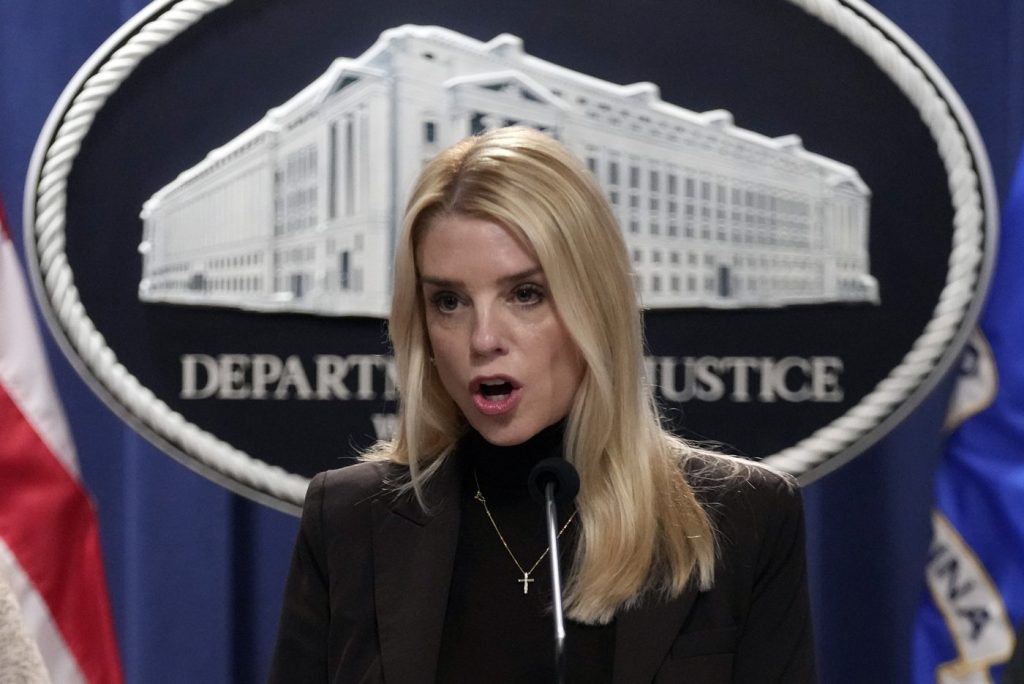In a recent turn of events following the Trump administration's ascendance to power, concerns regarding the political maneuvering of the Justice Department have intensified. Attorney General Pam Bondi had promised during her Senate confirmation hearing that her department would not be involved in political activities. However, subsequent actions have raised eyebrows, suggesting a shift in the department's traditional role.
In the first month of the new administration, notable actions by top officials have come to light. These include demands for the names of thousands of FBI agents involved in the investigation of the January 6 Capitol riot, legal action against a state attorney general who had recently won a significant fraud verdict against Donald Trump, and the dismissal of a criminal case against New York Mayor Eric Adams. The latter was justified by claims that ongoing charges hindered Adams' ability to collaborate with the Trump administration on immigration issues.
These developments have led to widespread turmoil within the Justice Department, an institution that has historically emphasized independence and adherence to the law. The wave of firings and resignations among department officials has created an atmosphere of unrest, raising concerns about whether Trump, who had previously criticized his own Justice Department, can reshape it to his liking in his current term.
Retired federal prosecutor David Laufman expressed alarm over the department's apparent subjugation to administration interests, warning that some decisions seem to compromise the integrity of the criminal justice system. This sentiment was echoed by the resignation of Danielle Sassoon, the top federal prosecutor in Manhattan, who left in protest against a directive to dismiss the criminal case against Adams. Sassoon alleged that the decision was contingent on securing Adams’ cooperation with Trump’s immigration agenda.
Several other high-ranking officials from the Justice Department's public integrity section also resigned in solidarity, indicating significant discontent with the new leadership's approach. A recent resignation by prosecutor Hagan Scotten highlighted a refusal to comply with demands that he found unethical, reflecting a growing resistance among department members.
This shift in Justice Department dynamics has drawn comparisons to historical events, such as the 1973 “Saturday Night Massacre,” which saw multiple Justice Department leaders resign to avoid executing President Richard Nixon's orders during the Watergate scandal. Alberto Gonzales, former attorney general under President George W. Bush, remarked on the potential risks of the department’s erosion of independence, emphasizing that the primary goal should be the fair and impartial enforcement of the law.
Critics of the current administration's actions view the dismissal of charges as politically motivated, positing that those with White House connections might escape consequences that ordinary citizens would face. The justifications presented for dropping the case against Adams were primarily political, raising further questions about the commitment to impartial justice.
As Bondi continues to defend the decision, asserting that the department is refocusing on prosecuting serious crimes rather than pursuing politically motivated cases, the narrative surrounding the Justice Department's independence remains tenuous. The internal strife, prompted partly by demands for accountability and assessments of FBI personnel from the January 6 investigations, underscores a chaotic environment where the boundaries between administration objectives and legal standards appear increasingly blurred.
With the Justice Department under scrutiny, further fallout and resignations could occur as the leadership seeks to align the institution with the president’s agenda. This ongoing saga marks a pivotal moment for the Justice Department, with implications for its future direction and the integrity of its operations.










